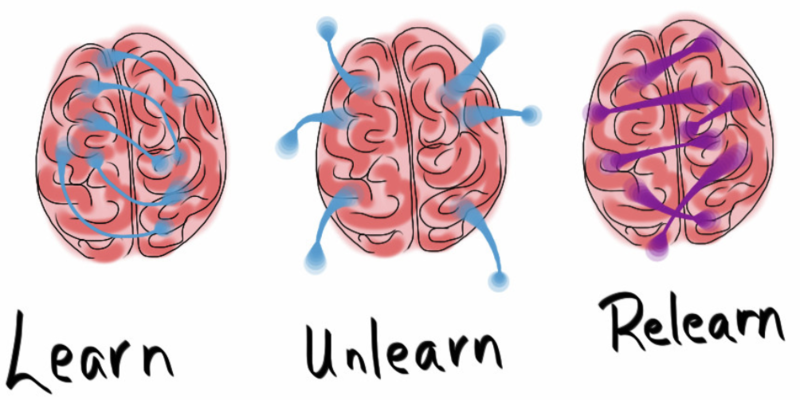Learning, Knowledge and Human Development MOOC’s Updates
Update #4 – Educational psychology: a focus on unlearning
I will attempt to show here how educational psychology contributes to our understanding with a focus on the topic of unlearning.
Let’s use for context the topic of data literacy education. This is the learning of the world of data, in particular digital, as a representation of the world we live in. This is also about AI, which are the increasingly used mechanisms according to which the data is processed and pushed over to the recipients (adults and children). Let’s look at it under the concept of critical thinking and let’s apply it to one example which is fake news [1].
As a piece of evidence, I will share the context of my 8-year-old daughter who persuasively repeated several times a piece of false information, being initially convinced it was true, just because one of her good friends had told it to her. It was hard to initially change her mind because her relationship to her friend was stronger than the concept of logic to identify truth [2], which we were trying to teach her.
The concept I want to highlight is that learning requires unlearning [3]:
- Unlearning at individual level in the form of discarding a learning already made and that is taken for valid. At neuroscience level, this means having enough brain determination to unwire established neuronal connections the brain already has in order to rewire new ones.
- Unlearning at group level in the form of countering the consciously perceivable psychological pressure of the group on the individual and the unconscious mechanisms of social cognitivism. This implies disconnecting from, and confronting, the social group.
These two unlearning mechanisms require difficult transformations at the individual’s neuronal plasticity level and at the group’s social behavioral level. These are two educational psychology challenges for the learner and the educational environment.
I will conclude with a generalization of the concept. What applies to children education also applies to adults. And beyond data and AI it relates similarly to facts and theory. It applies as much to fake news on Facebook today as it applied to the theory of orbit of the earth around the sun during the 16th century. Astronomer Johannes Kepler overcame two educational psychology challenges to unlearn what was globally taught at the time:
- At individual level, Kepler did not let go during 10 years of an observation abnormality of planet Mars’ trajectory leading him eventually to establish the three laws of heliocentric planetary motion [4].
- At group level, Kepler fought against the established shared status-quo (of planets and sun orbiting around the earth).
[1] Nolan Higdon, August 2020, “The Anatomy of Fake News: A Critical News Literacy Education”
[2] Stanford Encyclopedia of Philosophy, “Truth”
[3] Max Visser, Radboud University, January 2017, “Learning and unlearning: a conceptual note”



